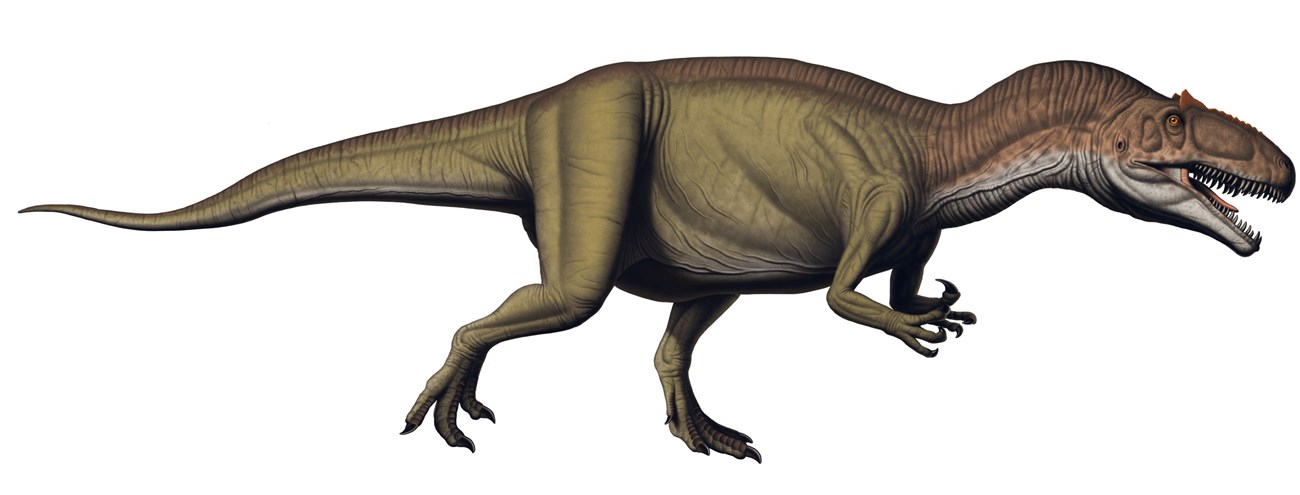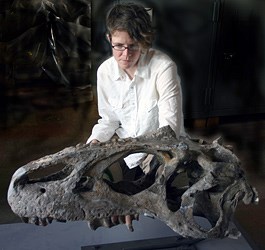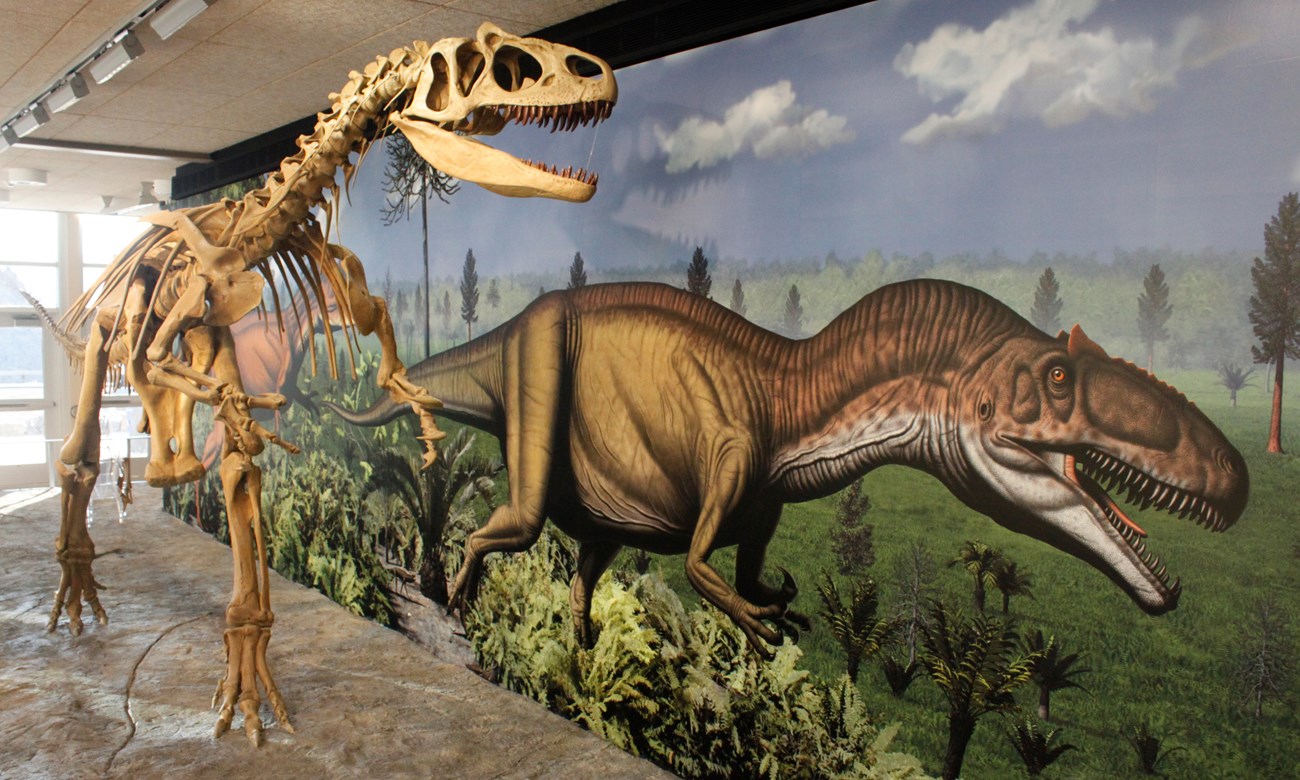
NPS/Bob Walters Tess Kissinger Allosaurus, meaning "different delicate reptile," is a theropod (meat-eating dinosaur) that probably ate other smaller dinosaurs. Its teeth were up to 3 in (7.6 cm) long and serrated like steak knives for cutting flesh. Adults hunted by overpowering their prey, possibly in small groups. Juvenile Allosaurus relied on their longer limb bones that were better adapted to running in order to hunt smaller vertebrates. Even though Allosaurus grew up to 30 ft (8.5 m) in length, it was not the largest predator of the time. Its sharp teeth and hook-shaped claws did, however, make Allosaurus a nightmare for many creatures of the Jurassic. 
Allosaurus fragilis is the most common species of carnivorous theropod dinosaur in the Morrison Formation from the Late Jurassic of North America. Although only a few of its bones are exposed in the present day quarry at Dinosaur, one of the best skeletons ever found came from the Carnegie Quarry including a remarkably preserved skull that is currently on exhibit in the Quarry Exhibit Hall. This specimen of Allosaurus fragilis has attracted the attention of paleontologists around the world and has been referenced in many scientific studies. You don't, however, have to be a scientist to marvel at this beautiful specimen. The real skull is on display at the Quarry Exhibit Hall. 
NPS |
Last updated: September 12, 2023
